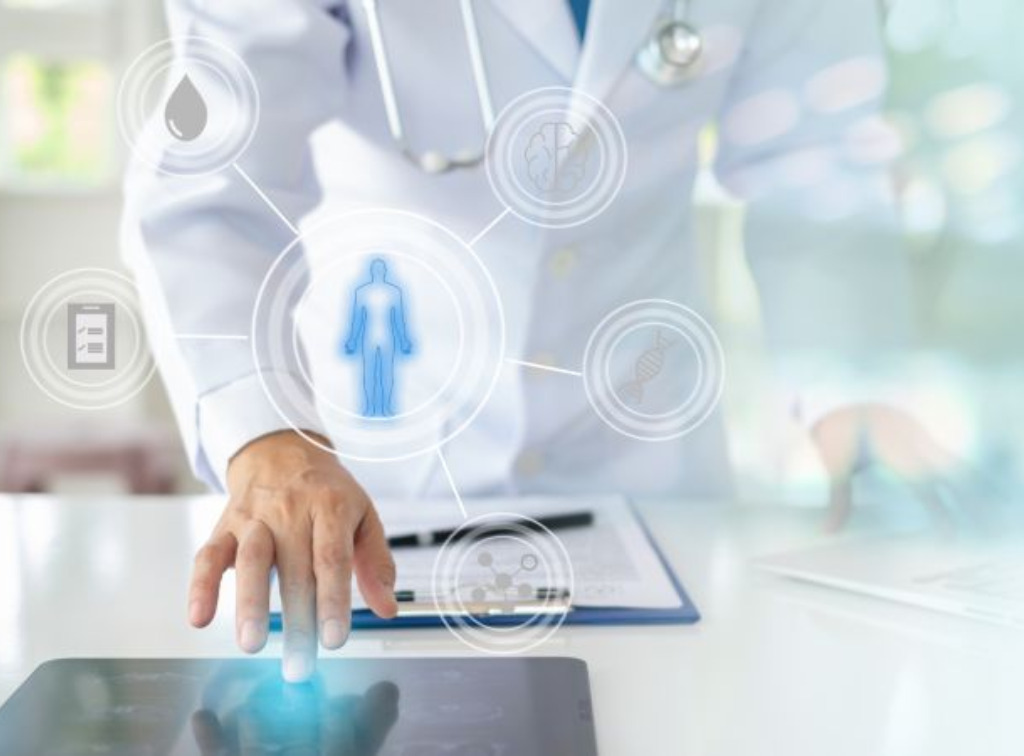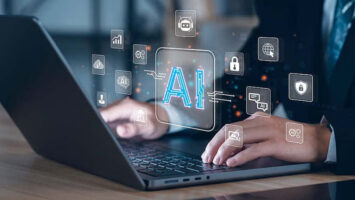Artificial Intelligence (AI) is transforming industries worldwide, and the healthcare sector is no exception. The incorporation of AI in healthcare brings promises of significant advancements, from improved patient outcomes and disease prediction to superior management of healthcare records. Whether in the form of automation, predictive analytics, intelligent interfaces, or complex simulations, it is undeniable that AI’s integration into healthcare offers tremendous possibilities and benefits.

Unraveling the Potential: AI’s Influence on Healthcare
AI’s foundational technology – machine learning – is skilled at finding patterns and making data-based predictions. This allows AI to be incredibly effective in disease diagnosis and predictive analytics. More specifically, it can sift through massive amounts of data – like medical records, clinical notes, and imaging – to identify trends that could indicate a patient’s likelihood of developing certain diseases.
Furthermore, AI-powered tools can help doctors and patients manage chronic conditions more effectively. AI algorithms can monitor a patient’s condition, predict fluctuations, and alert healthcare providers when intervention is needed. These digital health tools can improve patient engagement, adherence to medication and treatments, and overall health outcomes.
In image analysis and medical imaging diagnostics, AI has demonstrated its capacity to meet, if not exceed, human precision. AI tools offer the potential for physicians to detect diseases such as cancer at earlier stages, often improving the chance of successful treatment. Adaptive AI algorithms can sift through scans quickly, identifying abnormal structures and potentially life-threatening conditions that the human eye might miss under time pressure.
AI is also showing considerable promise in drug discovery and personalized medicine. Creating a new drug can take years, and testing it through clinical trials can be equally time-consuming. AI can hasten this process by predicting how different compounds will react in the human body. In personalized medicine, AI can analyze an individual’s genetic makeup and lifestyle, helping doctors to design a tailored health regime or treatment plan.
Lastly, AI in healthcare results in more efficient administrative operations. Automation of administrative tasks reduces the risk of human error, enhances efficiency, and cuts operating costs. Coupled with Natural Language Processing (NLP), AI can transcribe and digitize spoken notes or automatically populate fields in electronic health records, minimizing the burden of paperwork for healthcare workers.

AI in Action: Monumental Changes in the Healthcare Sector
The revolution AI has brought to healthcare is not just theoretical – it’s already in action. AI algorithms are being used in real-world applications to diagnose diseases such as skin cancer, diabetic retinopathy, and Parkinson’s disease, oftentimes faster and more accurately than human doctors.
Telemedicine, which has surged forward due to the COVID-19 pandemic, has benefited greatly from AI integration. With AI’s help, telemedicine platforms can offer intelligent virtual assistants that facilitate patient-provider interactions, monitor patient health, and provide predictive health analytics.
AI has also made substantial contributions to mental health. AI-powered mobile apps can monitor user’s emotional state over time and provide therapeutic interventions, which are particularly useful for patients who may not have easy access to a therapist.
In the battle against COVID-19, AI has played an instrumental role in various areas like global trend analysis, patient triaging, and the creation of actionable health insights using the vast amounts of collected healthcare data, illustrating how AI can prove powerful in a global health crisis.
More than just impacting the medical aspects of healthcare, AI is also transforming the business side of the sector. For instance, AI is being employed to streamline insurance claim processing, reduce healthcare fraud, boost patient engagement through personalized communication, and improve the overall efficiency and profitability of healthcare organizations.
On the innovation front, startups are enthusiastically exploring AI’s potential applications in healthcare. For instance, AI is being utilized to develop smart health wearables that monitor various vital statistics, from heart rate and glucose level to sleep patterns and stress. It’s clear that the potential applications are vast and continuously expanding.
In conclusion, AI’s influence on healthcare is truly monumental and transformative. It is already proving invaluable in various areas, like predictive analytics, disease diagnosis, patient care, and administrative tasks. As AI continues to evolve, we can only expect its presence and influence in the healthcare sector to increase, paving the way for better patient outcomes, more efficient healthcare processes, and overall, excellent healthcare experiences. Consequently, it is vital to continue advancing AI technologies and promoting their integration into the healthcare system for a healthier and brighter future.
Ainu Token aims to offer impartial and trustworthy information on cryptocurrency, finance, trading, and shares. However, we don't provide financial advice and recommend users to conduct their own studies and thorough checks.



Comments (No)